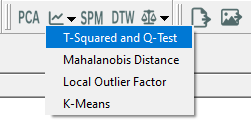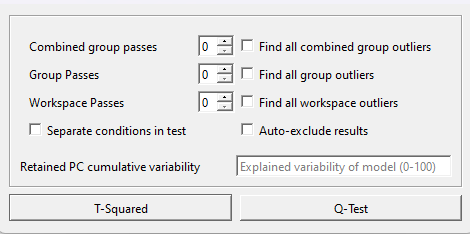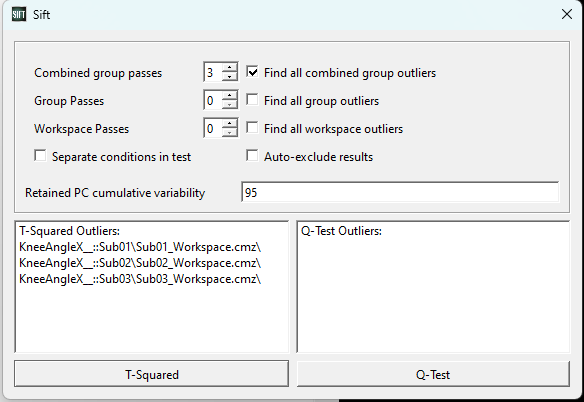Sift - T-Squared and Q-Test Dialog
| Language: | English • français • italiano • português • español |
|---|
T-Squared and Q-Tests are run using PCA results from the Sift PCA Module. Q-Test Results indicate how well each sample conforms to the provided PCA model, by measuring the residuals between a sample and its projection into the PCs. T-Squared results provide a measure of the variation of each sample within the PCA module.
The T-Squared and Q-Tests are found on the toolbar and under 'Outlier Detection Using PCA' in the Analysis menu.

Dialog

The T-Squared and Q-Test dialog using PCA allows the user to automatically search the data and identify traces that are outside the norm. The search for outliers can be done by Combined Groups, Group, and Workspaces. Users can decide if they want to auto-exclude any outliers that are detected in the groups or workspaces, and specify the retained cumulative variability of the model by the PCs.
- Combined group passes: The number of passes to make on the combined groups.
- Group passes: The number of passes to make on each group.
- Workspace passes: The number of passes to make on each workspace.
- Separate conditions in test: If conditions should be treated as separate groups.
- Auto-exclude results: If outliers should be automatically excluded from the results.
- Retained PC cumulative variability: The amount of cumulative variance that should be considered when calculating. This directly determines the number of PCs being used in the calculation.
Results

The T-Squared and Q-Test results appear upon completion of running either of the 2 tests. They both show what outliers have been found.